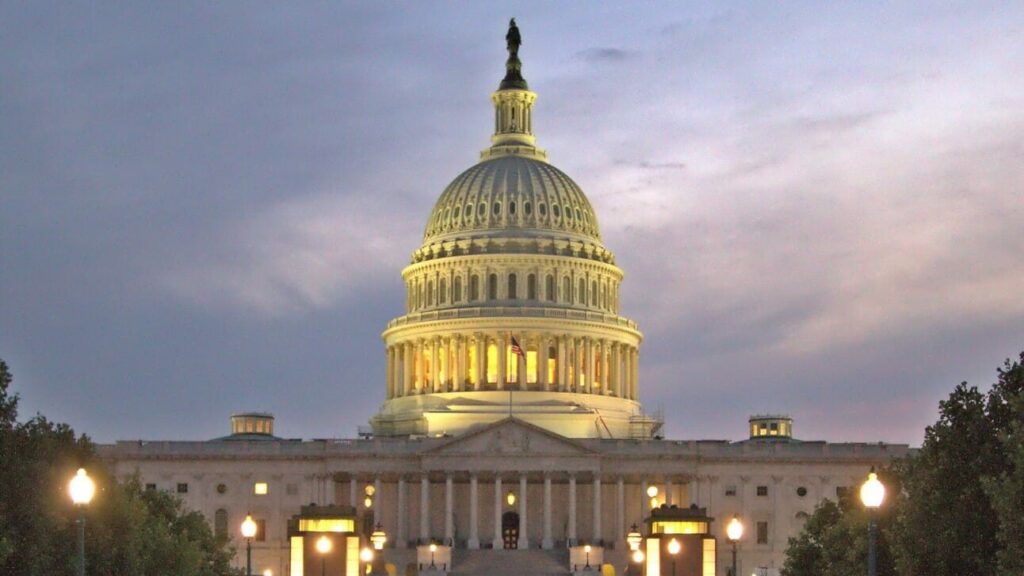Programming note: In general, I try to take Friday’s off. I mean, who need more email? On a Friday? Before a holiday week in the U.S.? So while it’s my ambition to take tomorrow off, I’ll be in your inboxes if something big happens.
There are three reasons I can imagine for delaying your weekend: drug prices come up at tonight’s debate (I mean a real discussion, not a throwaway line on the IRA), the NYT drops another PBM bombshell (more are clearly coming), or the Biden administration finalizes its march-in plan.
This is why people hate Congress.
Right now, Medicare can’t cover medicines for obesity because Congress forbade it back in 2003 when the drug benefit was estimated. For most of the past two decades, that ban hasn’t really been an issue, because the obesity meds that used to be available were decidedly “meh” and because there wasn’t a ton of proof of how widespread the benefit of obesity treatment would be.
But today, we have effective meds with increasing evidence that they bring benefits that goes a lot further than weight loss. So Congress has a choice.
They can clear the way for Medicare to reimburse for the medicines, making a useful and cost-effective treatment more broadly available. This would probably involve a conversation about priorities: such a move would hit the Medicare budget hard.
Or they could reject that idea in the name of fiscal responsibility and clearly tell seniors “you’re on your own.” That’s philosophically less defensible for reasons that Zeke Emanuel laid out well a couple of months ago, but it’s a stand.
But Congress has come up with a third choice: keep the ban in place but create a tiny sliver of an exception for new Medicare patients who were using the medicines when they started Medicare and whose commercial insurance plan was covering the drug. The House Ways and Means Committee is slated vote on the concept today.
Considering this as a “compromise” — it’s being pitched as an amendment to the “cover-everyone” approach — is deeply disingenuous. It’s illusory coverage, barely better than what came before, wrapped in the same box as comprehensive reimbursement. It doesn’t address the core question as much as it tries to obscure it.
I’ll be real curious to see how this all goes down.
My big beef with state-level efforts to control drug prices is that they lack meaningful standards, which creates a kind of chaotic process is which affordability is treated like pornography: regulators know it when they see it.
But not all states are taking such a loosey-goosey approach to naming and shaming specific drugs. Minnesota just released a list of medicines of “substantial public interest.” But the Minnesota be list is very specific: the state is looking for medicines being reimbursed above their wholesale acquisition cost.
In other words, they’re looking for evidence of actual price gouging.
And it seems like they’ve found enough to put 10 medicines on the list (here’s a link, Excel file)… that’s 10 drugs where the state is paying over list price. Those are 10 red flags.
At the top of the list is abiraterone, which we talked about yesterday (Sen. Jacky Rosen asked HHS why Medicare pays so much for that drug). And the rest of the list is heavy on specialty generics, which have long been a place where PBMs have sought to profit off of mammoth spread between what it costs to acquire a medicine and what payers can charge for them.
There’s a huge overlap between the Minnesota list and the medicines highlighted in the lawsuit alleging that J&J overpaid for drugs in its health insurance plan.
Minnesota doesn’t seem to have dug into the question of why the prices of those 10 medicines are out of whack (the news coverage is pretty vanilla here), but when they start turning over rocks, I suspect it’ll be (another) bad day for PBMs.
Sen. Ron Wyden is mad at PBMs — largely for actions that are undermining pharmacies with onerous contracts — and he’s asking CMS to intervene. His ire is directed mostly at Express Scripts. Per his letter: “When asked which PBM causes the most Part D financial stress, 47% of respondents cited Express Scripts as the most problematic, having 50% more complaints than the runner-up PBM.”
Huge props to the White House/HHS press operations for generating tons of headlines from the quarterly announcement of the medicines facing “penalties” due to faster-than-inflation price increases. I put “penalties” in air quotes because the actual effect is incredibly modest: in most cases, beneficiaries will see their cost-sharing reduced by a percentage point or less. For only three months. It’s small potatoes, but that didn’t stop NBC, Bloomberg, Fierce, The Hill, etc. from running with it.
I love the absurdity of this opinion piece in the Wall Street Journal that encourages Donald Trump to lean into his success with Operation Warp Speed to show that he has the bona fides to lower drug prices while promoting innovation. If Trump says, “Remember COVID vaccination? That’s all me, and you’ll get a ton more stuff like that if you put me back in the White House” … I’ll eat my hat.
If you really want debate pre-coverage around health, NBC has a link worth clicking. Again, my prediction is that Biden nods to the IRA but that the moderators don’t ask a single question about drug prices.
PhRMA launched a new campaign focused on educating about the patent system. They’ve got a point here: it’s hard to think of many (any?) medicines going forward that will get more than 15 years of freedom from generic/biosimilar competition or government price controls.
Header image via Flickr user Pierre-Selim.
Thanks for reading this far. I’m always flattered when folks share all or part of Cost Curve. All I ask is for a mention or tag. Bonus points if you can direct someone to the subscription page.





